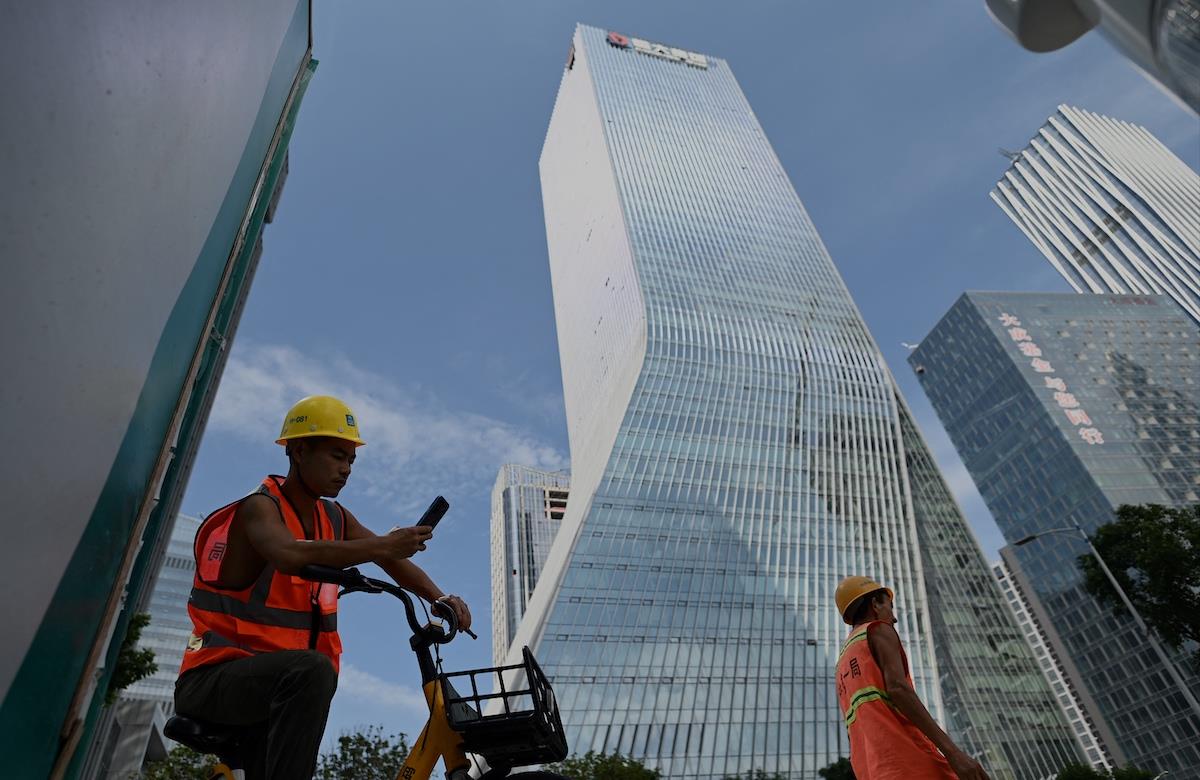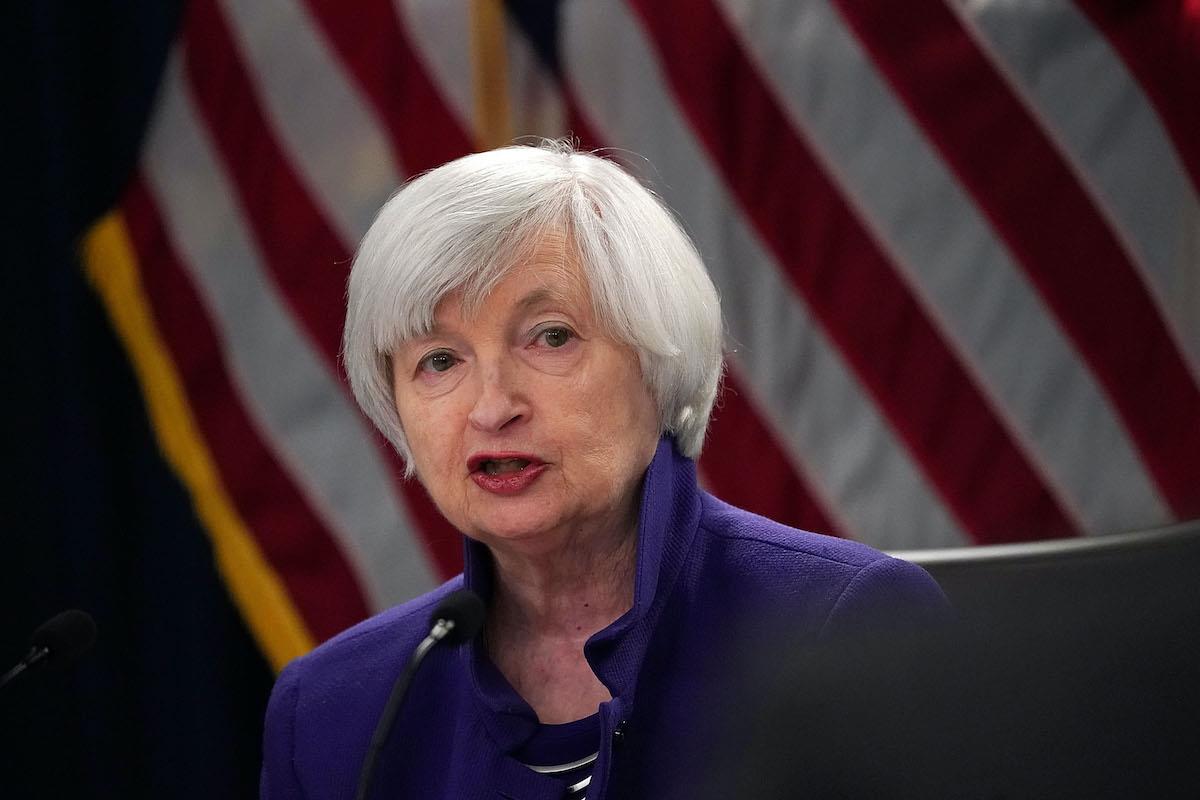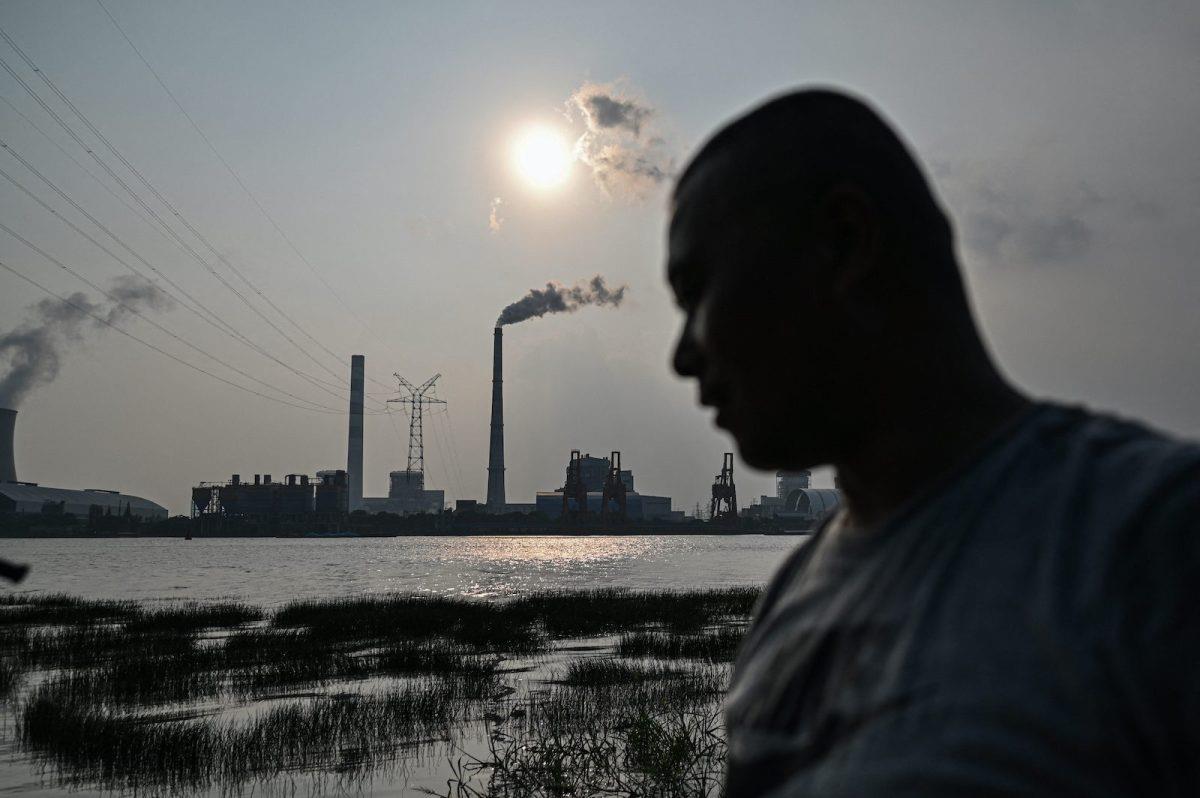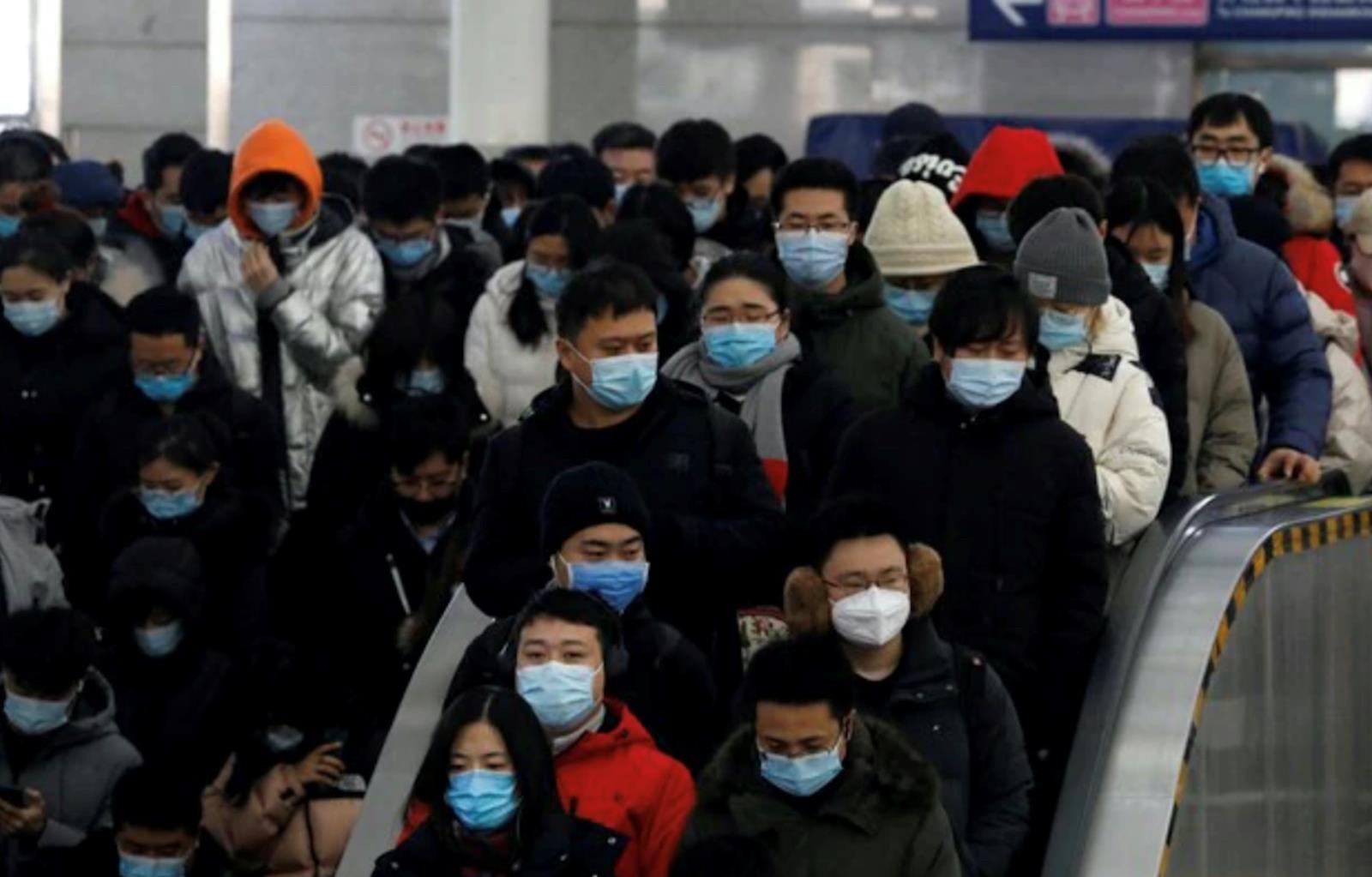It just so happens that Yellen's first China trip as US treasury secretary coincides with intense debate about Asia's biggest economy experiencing a Japan-like“balance sheet recession,” one that, if true, will be devilishly hard to reverse.
The reference here is to economist Richard Koo's oft-cited observation about why Japan plunged into deflation and stagnation in the 1990s. Specifically, this is when economic insecurity prods a critical mass of households and companies to prioritize boosting savings and paying down debt over consuming and investing.
Unlike a formal recession, where gross domestic product (GDP) contracts, the balance sheet variety condemns an economy to underperform for several years.
It's clear that as 2023 unfolds,“investors are concerned that China may have entered a liquidity trap or is experiencing a balance sheet recession,” says economist Carlos Casanova at Union Bancaire Privée, with the caveat that for now“these fears might be overstated.”
Yet the trouble with Japan-like economic funks is how souring sentiment can take on a life of its own. Herein lies the greater risk for Chinese leader Xi Jinping and Premier Li Qiang.
“Chinese policymakers are going about tackling the different factors underpinning weak sentiment,” Casanova explains.“Given the scattered nature of this support, it may take time for upside pressures on domestic asset prices to build and the Chinese yuan to stabilize.”
Koo, too, thinks China“is entering a balance-sheet recession,” partly because“people are no longer borrowing money” due to worries about the growth outlook and stability of asset markets. As households and companies focus on
reducing debt , China's growth can't return to pre-Covid levels, he worries.
“I hope Chinese policymakers understand and respond to these challenges, because this might be the last chance for China to reach the living standards of the First World,” Koo explains.
Economist Ting Lu at Nomura Holdings worries that“China's real estate sector is now starting to look somewhat similar to Japan in the 1990s.” As of May, for example, contract sales among the mainland's 100 top developers were down roughly 57% versus pre-Covid-19 levels in 2019.
Though Japan's plunge into deflation had several causes, cratering land prices - and the high degree of exposure to those prices among the nation's biggest banks - was a key catalyst. The overhang set in motion the bad loan crisis that was core to Japan's multi-decade malaise.
Economist Alicia Garcia Herrero at Natixis says land sales are“one of the most important components of China's local government revenue.” She adds that“given the challenges faced by China's property market are
largely structural , i.e., slower income growth, population aging, we expect the land sales revenue to continue being under stress down the road.”
Latest stories

blowing the bridge on myanmar's shifting civil war

wolfspeed-renesas deal heralds the future of power chips

ai will continue to create smarter robots
Xi's policymakers have sought to downplay such concerns. In March, Chinese Finance Minister Liu Kun argued that a 2 trillion yuan (US$276 billion) drop in land sales would only result in a 300 billion yuan loss to local governments' fiscal positions. That neat assessment may or may not add, however.
Clearly, economists can take the Japan-China comparisons too far. In 2021, economist Lan Xiaohuan published a best-selling book,“Embedded Power: Chinese Government and Economic Development”, detailing the unique dynamics of local property markets.
As Lan explains,“the real power is not 'land as fiscal finance,'” but“using land as collateral to accelerate bank lending and other forms of credit. When 'land as fiscal-finance' meets the capital market and adds leverage, it becomes 'land finance'” with Chinese characteristics.
Extreme opacity is an added problem. Along with privately-owned real estate companies, the top power brokers are state-owned entities known as Local Government Financing Vehicles (LGFVs), which borrow to finance infrastructure, industrial parks and housing across Asia's biggest economy.
LGFVs' outsized revenue role is now among the“main obstacles for broad-based macro support” for an economy losing momentum, says Casanova. They're at the core of“pboc concerns
about financial risks” along with“households remaining on the fence” about“deploying pandemic surpluses due to weak sentiment.”
However, Casanova notes,“without additional targeted measures, those two reinforce each other, resulting in a deflationary spiral and making it harder for the economic recovery to broaden its base.”
Yet Koo argues that China has a key advantage over Japan: it can learn from Tokyo's mistakes.
The key lesson, Koo says, is that stimulus treats the symptoms of China's troubles, not the underlying ailment. While it's vital that Beijing steps forward to ensure that giant building projects are completed, reforms to repair the property sector and build robust social safety nets are the key to avoiding“Japanification” risks.

China's beleaguered property market could be a long-term drag on growth. Photo: AFP / Noel Celis
Stabilizing property is vital to improving the quality of economic growth and reducing the frequency of boom-bust cycles. Social safety nets are needed to prod households to save less and spend more.
The good news is that China has“a fairly strong administrative system which can put losses where they should be - where they can be easily absorbed,” Raghuram Rajan, former chief economist at the
international monetary fund , told Bloomberg.
It may help, too, that the economic reform portfolio is now in Li's hands. Unlike his predecessor, the newish premier appears to have Xi's full confidence. That top-level buy-in is vital if Li is to pull off a monumentally difficult balancing act.
Li must support growth in the short run while maintaining the progress China has made in reducing extreme leverage and getting under the economy's hood to recalibrate engines from exports to domestic consumption. Naturally, the People's Bank of China (PBOC) will play a key role in smoothing out GDP.
Markets need to be“thinking about the likelihood of further easing ahead,” says economist Rob Carnell at ING Bank referring to benchmark Chinese interest rates. He adds that“we're going to get plenty more of those” moves to add liquidity in coming months“to keep [the] yuan on the back foot.”
Economist Joey Chew at HSBC Holdings says“some think that more concrete, non-monetary stimulus measures will only come out at or after the Politburo meeting in end-July. If so, some foreign-exchange policy smoothing may be needed in the meantime as we head into the dividend outflow season for China.”
Not everyone is convinced big stimulus moves are coming. Goldman Sachs economist Maggie Wei notes that recent meetings with greater China region investors unearthed lots of doubt.“Local clients did not expect major policy easing measures or structural reform measures to be rolled out in the July Politburo meeting” later this month, Wei says.
To some extent, the yuan's 5% drop this year limits the PBOC's options. Indeed, additional rate cuts might weaken the yuan to levels that exacerbate trade tensions with
washington
and Tokyo. At the same time, a weaker yuan would increase default risks for China's bigger property developers.
“The lesson from Japan's lost decades is that without a timely debt clean-up and demand stimulus, the deleveraging mindset could become entrenched in the private sector and, after a certain point, even zero interest rates would not be able to help,” says economist Wei Yao at Societe Generale. It follows that“such a danger seems increasingly relevant for China, as evident in households' strong appetite for savings.”
In the interim, interest margins among mainland banks“will be under persistent downward pressure if more of their lending capacity is used for extending loans to LGFVs at below-market rates,” Yao says.
China also faces an imponderable that Japan didn't in the 1990s: a full-blown trade war with Washington.
Yellen's presence in Beijing this week speaks to the high drama complicating Li's job in stabilizing the economy. To some observers, Yellen's trip is meant to reduce the geopolitical temperature following US Secretary of State Antony Blinken's recent visit.

US Treasury Secretary Janet Yellen was critical of China's treatment of US companies. Photo: Asia Times files / AFP
“I would say it's a little bit like good cop, bad cop, Blinken being the bad cop,” former IMF chief economist
ken rogoff
told the BBC.“And now Yellen going in as the good cop trying to say, look, you know, we have a lot in common. Let's see what we can do together.”
Even so, Yellen manages to throw some sharp elbows. On Friday, she chided Beijing for policies toward US companies and a recent move to limit the export of gallium and germanium, niche minerals used in some chip-making.
“During meetings with my counterparts,” Yellen said,“I am communicating the concerns that I've heard from the US business community - including China's use of non-market tools like expanded subsidies for its state-owned enterprises and domestic firms, as well as barriers to market access for foreign firms. I've been particularly troubled by punitive actions that have been taken against US firms in recent months.”
Xi's government, of course, has its own gripes about US President Joe Biden's efforts to make American manufacturers less reliant on Chinese production.
In the meantime, though, it's hard to refute that“China's economic development model resembles that of Japan over 30 years ago with high savings and high investment, but with restrained consumption and rigid institutions weighing increasingly on macroeconomic success,” notes George Magnus, a research associate at Oxford University's China Centre.
Magnus adds that“China's chronic over-investment and misallocation of capital, particularly in the property sector, pose a potentially bigger economic problem than Japan's banking crisis in the 1990s.”
On the bright side, Magnus says,“China has some advantages over
japan , such as a state-owned financial system that can prevent significant banks from failing and a closed capital account that can protect the country's banking system and the economy from the risk of significant capital flight. This however might not prevent China from taking the same economic trajectory [of] Japan.”
That requires urgent and creative moves to repair the property market, create robust social safety nets and put China on a path toward more productive economic growth. China can surely avoid Japan's lost decades, but there's not a moment to waste in shifting the narrative about the economy's downward trajectory.
Follow William Pesek on Twitter at @williampesek
Like this:Like Loading... Related


























Comments
No comment